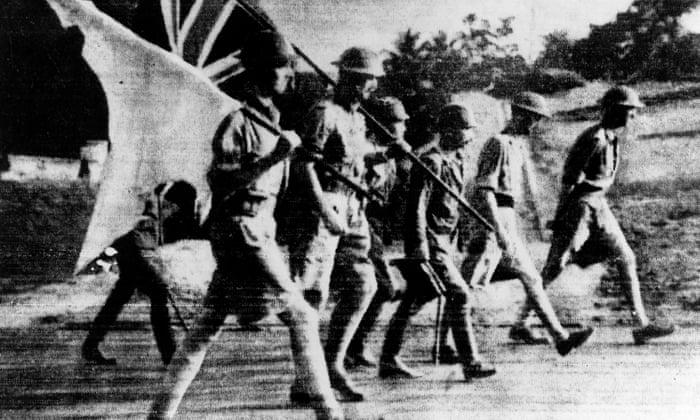
A fascinating article by Simon Kuper has proposed a parallel between Brexit and the strange cargo cults of Melanesia, when societies suddenly destroy their economic underpinnings in search of a golden age, because they perceive the tribe is in some kind of decline.
It is particularly relevant now that corners of the Conservative party appear to be baying for a non-negotiated Brexit. And unfortunately, as the countdown ticks by, that may well be what they get.
There is another parallel, but it comes from psychology not anthropology. It derives from an influential theory by a former military engineer-turned-psychologist, Norman Dixon. His book, On the Psychology of Military Incompetence, was published in 1976, and has been in print ever since. His ideas may draw too much on Freudian concepts for current tastes, but there are worrying parallels to the phenomenon that he identified: the syndrome that seemed to lie behind so many British military disasters.
His thesis was that the old idea that military incompetence was something to do with stupidity had to be set aside. Not only were the features of incompetence extraordinarily similar from military disaster to military disaster, but the military itself tended to choose people with the same psychological flaws. It led soldiers over the top to disaster, or to a frozen death, as in the Crimea.
These characteristics included arrogant underestimation of the enemy, the inability to learn from experience, resistance to new technologies or new tactics, and an aversion to reconnaissance and intelligence.
Other common themes are great physical bravery but little moral courage, an imperviousness to human suffering, passivity and indecision, and a tendency to lay the blame on others. They tend to have a love of the frontal assault – nothing too clever – and of smartness, precision and the military pecking order.
Dixon also described a tendency to eschew moderate risks for tasks so difficult that failure might seem excusable.
Therein lies the great paradox. To be a successful military commander, you need more flexibility of thought and hierarchy than is encouraged by the traditional military – or the traditional Conservative party, as the xenophobes inch their way into the driving seat.
But it was Dixon’s description of the disastrous fall of Singapore in 1942, almost without a fight, because the local command distrusted new tactics and underestimated the Japanese, that really chimes. And his description of too many second-rate officers repeating how they wanted to “teach a lesson to the Japs”.
None of this suggests that Brexit is somehow the wrong strategy, but that the agenda has been wrested by a group of people showing the classic symptoms of the psychology of military incompetence, including a self-satisfied obsession with appearance over reality and pomp over practicality, and a serious tendency to talk about European nations as if they needed to be “taught a lesson”.
Never was imagination and a sophisticated understanding of a changing world so required. Read Dixon, and you begin to worry that the more we hear fighting talk as if the continent were filled with enemies, the more we might expect a hideous capitulation.
Dixon died in 2013, but he did leave behind this advice, originally given by Prince Philip to Sandhurst cadets in 1955: “As you grow older, try not to be afraid of new ideas. New or original ideas can be bad as well as good, but whereas an intelligent man with an open mind can demolish a bad idea by reasoned argument, those who allow their brains to atrophy resort to meaningless catchphrases, to derision and finally to anger in the face of anything new.” Right or wrong, it sounds like we need a few more Brexit mutineers.